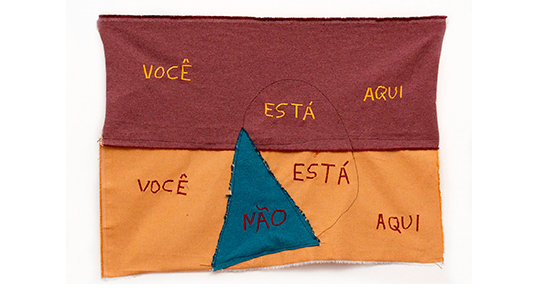After a two-year hiatus during the COVID-19 pandemic, Carnaval do Brasil was poised to return in all its colorful pageantry across the country this past February. Yet, flooding across Brazil’s Sao Paulo state forced many cities to cancel their scheduled festivities as hundreds flee their homes. In a month that has witnessed devastation on a large scale stemming from catastrophic natural disasters, from the deadly quakes in Turkey and Syria to forest fires in Chile, it can feel like an unrelenting onslaught of uncontrollable circumstances. Enter the work of Guga Szabzon, a visual artist and educator from São Paulo, Brazil, whose works speak to the impossibility of naming experience even as they offer a way to keep the world “safe between . . . pages.” In the first installment of a new series spotlighting the stunning visual content from our archives, we revisit our interview with the artist from the Fall 2018 issue.
The lines in a notebook, in general, have a clear utility: to organize the text, to make the text comprehensible with a clear and sequential reading. I’ve never really followed that rule, but I always opted for notebooks with ruled pages. I discovered after some time that what attracted me to this choice was not having a blank page waiting for me. The lines were already a design. As time went by, I realized that the organizational forms of the world interest me. And I realized that there was a similarity between ruled lines and the coordinates of a map. Both have latitude and longitude. One organizes a text and the other organizes space.
The sensation that I had with this project was the same that I had with my notebooks. My own world kept safe between the pages. Everything I had lived. How many stories fit inside a notebook? How many stories can be written on the blank pages? An entire world awaiting the next word.


